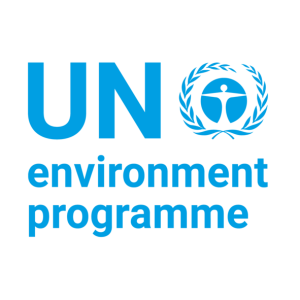Perfilado de sección
-
-
Composed of 17 Regional Advisors (RAs), the Regional Advisors Network (RAN) is a group of UNEP contracted consultants who conduct BCH III project training activities at the national, regional and global levels. Regional Advisors are deployed on country missions as needed, to conduct national workshop trainings. Each Regional Advisor is specialized in one of the six regions of the BCH III: Africa, Asia, Caribbean, Central and Eastern Europe, Latin America and the Pacific. Â
-
The Regional Advisors Network is thought of as a flexible and “light administrative mechanism†to provide technical assistance on biosafety issues. BCH III Project Manager and Team, within UNEP Law Division, lead and coordinate RAs with the support of three Senior Regionals, called “Regional Specialistsâ€.Â
Â
AFRICA REGION – REGIONAL ADVISORSÂ
Â
Â
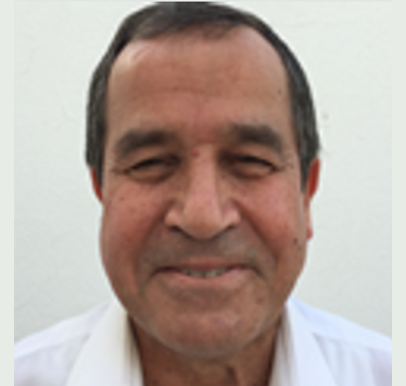 Â
 Â
Mohamed Elyes Kchouk, Regional Specialist for UNEP-GEF BCH III project, Francophone Africa. He started working on BCH projects back in April 2005. Mohamed is from Tunisia and works in Africa and the Middle East. He speaks Arabic, English, French, and Italian. Â
Â
Mohamed started working on BCH projects back in April 2005. He is currently a Regional Specialist for the UNEP-GEF BCH III project. Â
As a scientist and biosafety expert, he worked on the conservation of genetic resources of durum wheat (1982-1990), on the genetic transformation of globe artichoke (1990-2000), and on aromatic and medicinal plants (AMPs) (2000-2016). He holds a PhD (Doctorat d'Etat) in Biology from the University of Tunis El Manar (2000) and was an Invited lecturer at the Faculty of Sciences of Sfax (2000-2016). Â
Mohamed is a member of the Scientific Committee of the National Genebank, and the National Technical Committee on Biosafety of Tunisia. He co-founded both the North African Network of Taxonomy in 2002 (Coordinator from 2007 to 2013) and the Tunisian Association of Taxonomy (President from 2009 to 2016). He is the author of several scientific publications and holds three patents on the biological activities of Tunisian AMPs and an automated database on Tunisian Flora. Mohamed is also an elected member of the City Council of Hammam-Lif (2018) and chairs the Committee on Works, Urban Development, Participatory Democracy and Open Governance (2018-2023). Â
You can contact Mohamed at mohamedelyes@gmail.com Â
Â
Â
Â
Â
Â
Ossama Abdel-Kawy is currently the Anglophone Africa Regional Specialist for the UNEP-GEF BCH III project. He has long experience with the Cartagena Protocol on Biosafety and with the domestication of the protocol at the national level for several governments. Ossama is from Egypt, he is fluent in Arabic, English and French. Â
Â
Ossama Abdel-Kawy is an Interdisciplinary Scientist, Policy Advisor, and Projects Manager with a background in Molecular biology and Pharmaceutical sciences. He received a PhD in Microbiology from Cairo University in 2011 and has undertaken a postdoctoral fellowship at the University of Helsinki. Currently, he is a professor at the Egyptian Atomic Energy Authority and Anglophone Africa Regional Specialist at the BCH III project. Through numerous research and capacity-building projects, Abdel-Kawy is heavily engaged in developing countries as an expert advisor. He travelled on official business to some 50 countries worldwide and assisted many countries in designing, kicking off, and executing national capacity-building projects, leading multi-stakeholders consultation and coordination processes, and drafting laws, technical guidelines, and policy papers. He participated in the CBD negotiations that led to the Protocols on Access and benefit-sharing and Liability and Redress as a nominated expert to several governments’ delegations, including Egypt, Mauritania, and Rwanda. He is experienced in training both formally (in educational institutions) and informally in training seminars and workshops and has extensive experience with domesticating international environmental agreements at the national level. He also has a vast working experience for various international agencies, including the United Nations. Abdel-Kawy is fluent in English and understands and speaks French easily.
You can contact Ossama at elkawyo@gmail.comÂ
Â
Â
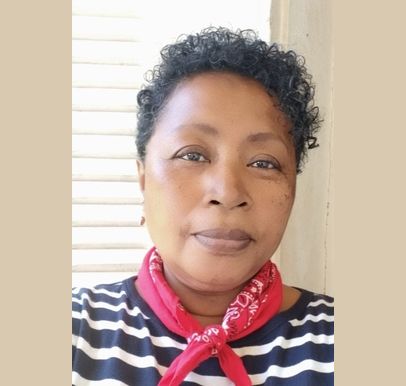 Â
 Chantal Andrianarivo has been a Regional Advisor for Africa since 2007. She provided several workshop training for BCH I, II and III projects at national and regional levels in Burundi, Cape Verde, Comoros, Gabon, Madagascar, Egypt and Germany. Chantal is Malagasy and speaks fluent French and English. Â
Â
Chantal Andrianarivo has higher education in Applied Biological Sciences and is a specialist in biodiversity: policy, conservation, and sustainable management.Â
She joined the BCH I, II and III projects in 2007 as Regional Advisor and has provided several BCH training in French and English at national, regional and global levels (Comoros, Burundi, Madagascar, Cape Verde ... Egypt, COP/MOP in Bonn).Â
She has been the National Coordinator of the UNEP/GEF Biosafety projects for more than 6 years: from the development to implementation of the national biosafety framework in Madagascar. Â
She was the second Focal Point of the Cartagena Protocol and has represented officially her country and attended various CBD COP/MOPs.Â
Chantal has wide experience in managing projects and programs both at the national and regional level (Western Indian Ocean) as she has also been in charge of biodiversity and Multilateral Environmental Agreements within the Indian Ocean Commission (IOC). Â
She was Focal Point and President of the Nairobi Convention and is skilled in Integrated Coastal Zone Management (ICZM).Â
Â
You can contact Chantal at chantandri@gmail.com Â
Â
Â
Â
Charles Aubin Kouassi is an experienced Regional Advisor Africa. He joined as a Regional Advisor in 2007, working for the previous BCH projects. He has facilitated training workshops on the use of the Biosafety Clearing House (BCH) in several countries including Niger, Cape Verde, Ivory Coast, Algeria, Tunisia, Burkina Faso, Gambia, Chad, Central African Republic, Guinea Bissau, Gabon, the Republic of Djibouti, Benin, Senegal, Cameroon, Rwanda. Charles is from Ivory Coast and speak English and French. Â
Â
English version: Charles Aubin Kouassi is an Information Technology and Communication Specialist with over 20 years of professional experience. He has been working on computer systems integration projects and performing national and international training workshops. Â
He holds a B.Sc. degree in IT systems and Telecommunication Networks. He is also Microsoft Certified Solutions Expert (MCSE), ITIL Foundation Certified and Certified Associate in Project Management (CAPM).Â
Regional Advisor since 2007 with the UNEP-GEF Projects, he has facilitated training workshops on the use of the Biosafety Clearing House (BCH) in several countries including Niger, Cape Verde, Ivory Coast, Algeria, Tunisia, Burkina Faso, Gambia, Chad, Central African Republic, Guinea Bissau, Gabon, the Republic of Djibouti, Benin, Senegal, Cameroon, Rwanda ...Â
He also assisted the Regional Biosafety Program of the West African Economic and Monetary Union (UEMOA) in the implementation of its regional biosafety central portal and the capacity building of its stakeholders.Â
Â
You can contact Charles at charleskca@hotmail.com Â
Â
Â
Â
Patrick Kouassi is an experienced Regional Advisor in Africa. He joined the Biosafety Clearing House projects (BCH) on Cartagena Protocol as an IT Regional Advisor in 2007. Since then, he has facilitated several capacity-building workshops related to the Cartagena Protocol BCH project on behalf of UNEP in various countries: Côte d'Ivoire, Benin, Togo, Guinea Equatorial, Sierra Leone, Gambia, Guinea Bissau, Sao Tome and Principe, Cape Verde, Botswana and others. Based in Ivory Coast, Patrick speaks both French and English.Â
Â
Patrick KOUASSI joined the Biosafety Clearing House Project (BCH) on CARTAGENA PROTOCOL as IT Regional Advisor in 2007.Â
Since then, He has facilitated several Capacity building workshops related to the Cartagena Protocol BCH Project Agreement on behalf of UNEP in various countries: Côte d'Ivoire, Benin, Togo, Guinea Equatorial, Sierra Leone, Gambia, Guinea Bissau, Sao Tome and Principe, Cape Verde, Botswana and others.Â
Besides his consultancies with different biosafety projects, he is an IT Specialist Consultant with more than 15 Years of experiences. His main area is Open Source systems (Linux...) in Web Services, Virtualisation technologies. Â
He also has a broad knowledge of Project Management.Â
Patrick holds a master’s degree in computer science and another master’s degree in management science. Â
You can contact Patrick at rvpatko@gmail.com Â
Â
Â
Â
Lilian Munyah NFOR is a Regional Advisor for the BCH III in Africa. Since 2017, she has conducted a series of national and regional BCH3 training workshops - preparing, organizing, facilitating and reporting, including identification and collection of indicators for BCH project outcomes in Africa. She is an Editor on UNEP Virtual Learning Environment national BCH courses for countries in which she conducted workshops. She actively participates in development/upgrading of training materials for the BCH3 project and in the review process of the development of the new BCH platform. Lilian is from Cameroon and speaks English and French.Â
Environmental Lawyer by training, Specialist in biodiversity policy, regulation and capacity building, Lilian became UN Environment BCH Regional Advisor in 2006 with BCH-I, currently with BCH-III since 2017, having received BCH Regional Advisors Training of Trainers in Bangkok-2006, Montreal-2011 and reorientation in New Delhi-2007; and, series of BCH virtual courses aimed at enhancing BCH Regional Advisors’ capacity. She has conducted series of national and regional BCH training workshops-preparing, organizing, facilitating and reporting, including identification/collection of indicators of BCH Project outcomes in Africa. She is an editor on UNEP Virtual Learning Environment national BCH courses for countries in which she conducted workshops during BCH-III. She actively participates in the development/upgrading of training materials for the BCH Project; and, in the review process of the development of the New BCH platform. Â
An employee of the Cameroon ministry of environment 1993-2020, Lilian accumulated experience in environmental policy, regulation, management and capacity-building, focusing on biosafety, ABS, biosecurity and NBSAP through involvement in relevant UNEP-GEF/Cameroon projects; participated in international negotiations in the CBD/CPB/NP/SPLR processes including COP/COP-MOPs. Concurrently engaged since 2003 in national and international consultancy assignments with Cameroon, UNEP, UNDP, and WAEMU, including developing a Training Programme on ABS for Local Communities in Cameroon, under UNDP-Cameroon Project on ABS-2018. As Biosafety Specialist-Fellow at ICGEB biosafety capacity building pilot project for sub-Saharan Africa 2009-2011, she was involved in planning, organizing, facilitating, and reporting biosafety training workshops/activities.Â
Lilian is a holder of a Master’s in Environmental Law and Management with research on biosafety from Aberystwyth University UK-2003; a series of professional development/short/mid-term training courses in biodiversity/biosafety regulation, management and capacity building including a Diploma in Project Management, PAID-2016 and, E-learning on implementation of NP-ABS, SCBD/IDLO 2018.Â
She has travelled widely, gained international exposure and works easily with people of diverse backgrounds, respecting UN Core Values: Integrity, Professionalism and Respect for Diversity.Â
You can contact Lilian at liliannfor@yahoo.com Â
Â
ASIA REGION – REGIONAL ADVISORSÂ
Â
Â
Â
Edmund M. Revilla is one of the two Regional Advisors for Asia. He has been BCH Regional Adviser on UNEP-GEF BCH projects since 2005. As a BCH Regional Adviser, he works with Cambodia, China, Egypt, India, Indonesia, Kiribati, South Korea, Laos, Malaysia, Philippines, Thailand, Turkmenistan and Viet Nam in capacity-building activities to help establish national and regional BCH systems and make it sustainable beyond the BCH project duration. Edmund is from the Philippines. He works mostly in Asia and speaks English, and Filipino.Â
Â
He is a BCH Regional Adviser, Web Information System expert, Website developer, and IT System Analyst / Developer / Contractor / Trainer. He is currently a consultant for the Asian Development Bank (ADB) since 2015 and a BCH Regional Adviser for the UN Environment Programme-Global Environment Facility (UNEP-GEF) Biosafety Clearing-House (BCH) project since 2005.Â
As a BCH Regional Adviser, he works with Cambodia, China, Egypt, India, Indonesia, Kiribati, South Korea, Laos, Malaysia, Philippines, Thailand, Turkmenistan and Viet Nam in capacity-building activities to help establish national and regional BCH systems and make it sustainable beyond the BCH project duration. This was done by developing and doing national and regional workshops, regional networking road-maps, and establishing regional networks with fellow BCH Regional Advisers, UNEP-GEF BCH team, the Asia Biosafety Family team, and the country’s BCH team in the Asia and Pacific regions. He also helped create and execute public awareness activities and materials for the BCH capacity-building activities and regional networking done in Asia during the COP-MOPs in Cancun, Mexico and Sharm El-Sheikh, Egypt.Â
Â
You can contact Edmund at edmund.revilla@gmail.com Â
Â
Â
Â
Ruel V. Maningas is a Regional Advisor for the Asia region. He has been working on the BCH projects as a BCH Regional Advisor – resource person and facilitator to various national, regional and global training workshops – since 2006. To date, he has provided biosafety and BCH-related consultancy services to projects and activities that were held in 26 countries. In the last 15 years of his involvement, occassionally developing learning modules for the project, Ruel has interacted with several stakeholders from Asia, the Pacific, Africa, Latin America and the Caribbean, and Central and Eastern Europe. Ruel is from the Philippines, he speaks English and Filipino. Â
Â
Dr Ruel V. Maningas is a professor, academic administrator, international consultant, strategist, professional speaker, and capability-building specialist in the fields of development project planning, information systems and technology, knowledge management, strategic management, business sustainability, management economics, and business analytics, serving corporate, national, regional, and global institutions and organizations in the past 30 years. He obtained his Master in Management major in Development Management and Doctor of Philosophy in Extension Education (as a government science and technology scholar) from the University of the Philippines Los Banos in 1995 and 2003, respectively. He earned his Bachelor of Arts major in Economics degree from Colegio de San Juan de Letran Calamba, the Philippines in 1987. Â
Dr Maningas has 18 years (August 1988-April 2006) experience in the public service, in particular, with the Philippine Council for Agriculture, Forestry, and Natural Resources Research and Development (PCARRD). The last 10 years of his work at PCARRD focused on providing information and knowledge systems and technology services to farmers, agri-entrepreneurs, and government workers engaged in agriculture, environment and natural resources in the Philippines.  Â
In the international arena, Dr Maningas assumed the position of Assistant Director and Joint Secretary of the Asia-Pacific Association of Educators in Agriculture and Environment (APEAEN) Inc. from 2007-2012. He is also a consultant to the United Nations Environment Program serving as a Biosafety Clearing House (BCH) Project Regional Advisor for Asia from 2006 to present. To date, he has already provided biosafety and BCH-related consultancy services to projects and activities that were held or conducted in 26 countries. In the last 15 years of his involvement in this project as a resource person and facilitator to various national, regional and global training workshops, and occasionally developing learning modules for the project, Dr Maningas has interacted with several stakeholders from Asia, Pacific, Africa, Latin America and the Caribbean, and Central and Eastern Europe.  Â
Dr Maningas is currently the Program Director of the Graduate Program and Professional Courses in Applied Business Analytics and a full-time professor at the University of Asia and the Pacific (UA&P). He is also a member of the Editorial Board of the Innovatus Journal, the official publication of the UA&P School of Sciences and Engineering and SMN Digest, the UA&P School of Management (SMN)’s official journal publication. Â
Â
You can contact Ruel at rvmconsult@gmail.com Â
Â
CARIBBEAN REGION – REGIONAL ADVISORSÂ
Â
Â
Â
Michelle John is one of the two Caribbean Regional Advisors for the Caribbean. She has been a Regional Advisor for UNEP-GEF BCH III since 2019. Michelle is from Trinidad and Tobago. She works in Trinidad and Tobago and Caribbean countries and speaks English and German. Â
Â
Michelle John is a Consultant with more than 18 years of professional experience in areas such as agriculture, biosafety, project management, teaching and curriculum development. Her involvement in biosafety goes back to 2003, when as a former member of the National Biosafety Committee of Trinidad and Tobago she contributed to the drafting of the country’s Draft Biosafety Policy and National Biosafety Framework. She is the holder of a BSc. Agriculture, Diplom-Agraringenieurin, Post Graduate Diploma International Relations and PhD. International Relations. With respect to links to the global BCH projects, 12 countries in the CARICOM region were able to access training in the BCH as part of the Regional Biosafety Project executed over the period 2012 – 2018. This was in synergy with the BCH II project and served as a means of strengthening biosafety information management in the Caribbean sub-region. Direct involvement with the BCH III project, from which CARICOM countries continue to benefit, began with a regional training workshop held in Trinidad and Tobago in 2017, followed by national workshops hosted by Grenada and the Bahamas (2018 and 2019 respectively), and another regional training workshop in Barbados in 2019. The role of Regional BCH Advisor was adopted in 2019.
Â
You can contact Michelle at michelle7361.john@gmail.com Â
Â
Â
 Â
 Fred is also a Regional Advisor for the Caribbean region. Fred has worked with the UNEP through all BCH projects, including BCH III (the third project) from 2017 until now. Fred was trained in Geneva in 2007 as a Cartagena Protocol Regional Adviser (Caribbean) for the BCH project. Fred was born on St. Vincent and operates at present from Barbados. He is a native English speaker and his work geography for the BCH project is the Caribbean region.Â
Â
Fred was trained in Geneva in 2007 as a Cartagena Protocol Regional Adviser (Caribbean) for the B.C.H. Project. He began carrying out missions that same year throughout the Caribbean, advising stakeholders from varying backgrounds on legal issues relating to biosafety and biotechnology. This includes familiarising participants with general principles of biosafety, the Cartagena Protocol, and the B.C.H.; sensitising them to the potential issues involved in importing Living Modified Organisms (“L.M.O.sâ€) into their country, or the export of L.M.O.s that have been developed therein; and providing advice, technical assistance, and training to target audiences to ensure continuity and sustainability of fulfilment of B.C.H.-related obligations.Â
Fred has worked with the B.C.H. Project through all its phases, including (from 2017) Phase III. He is the lecturer on the “Legal Aspects of Biosafety†class for the Master’s degree course offered by the University of the West Indies. His course familiarises students with international agreements, regulations, guidelines, and national laws on biosafety worldwide and in the Caribbean. In addition, Fred is a certified expert in the fields of ecosystem-based adaptation to climate change and disaster risk management/ecosystem-based disaster risk reduction.Â
Fred was born in St. Vincent and operates at present from Barbados.
You can contact Fred at parhelion1@gmail.com Â
CENTRAL AND EASTERN EUROPE REGION – REGIONAL ADVISORsÂ
Â
Â
Galina Mozgova joined as a Regional Advisor for Central and Eastern Europe in 2019. She has been providing BCH training for the countries of the Central Eastern Europe region: Kyrgyzstan, Tajikistan, Armenia, Bosnia and Herzegovina. She also provides translation services to support the development of communication material on the practical use of BCH, and recorded training videos in Russian explaining how to utilize the new BCH interface. Galina is from Belarus. She speaks Belarussian, Russian and English. Â
Â
Galina Mozgova started working on the BCH III Project in 2019. Provide BCH training for the countries of the CEE Region. Delivered training for Kyrgyzstan, Tajikistan, Armenia, Bosnia and Herzegovina. Provided translation services to support the development of communication material on the practical use of BCH, and recorded training videos in Russian explaining how to utilize the new BCH interface.Â
She has 20 years of work experience. Started her carrier as a junior scientist at the Institute of Genetics and Cytology. Since 2016 has served as the Head of the National Coordination Biosafety Centre of the abovementioned institute. She has eighteen years of experience in the management of national and international scientific and technical projects on environmental safety, and food and feed safety. Co-author of two plant varieties of canola adapted to abiotic stress, and one variety adapted to biotic stress, author and co-author of 97 scientific publications. Since 2012, she has participated in various Ad Hoc technical expert groups at the CBD.Â
She has a PhD with a specialization in Genetics and holds an M.Sc. in Biology and an M.Sc. in Pedagogy.Â
Â
You can contact Galina at g.mozgova@yandex.ru Â
Â
Â
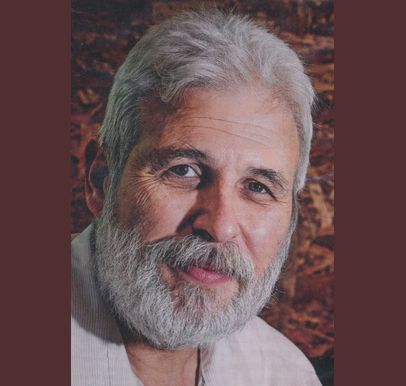 Â
 Â
Aleksej is a Regional Advisor for Central and Eastern Europe. He has worked as Regional Advisor on all three UNEP BCH projects and participated in organizing regional biosafety workshops (for EU member Countries – Ljubljana, Slovenia 2007, for CEE region – Cairo, Egypt, 2008, for Europe and Asia – Bonn, Germany 2008, for CEE countries – Belgrade, Serbia, 2017) as well as several national ones in Europe and Asia. Aleksej is from Serbia, he speaks Russian, Serbian and English.Â
Dr Aleksej Tarasjev's fields of expertise include evolutionary ecology and ecological genetics of plants. He is head of the Department for Evolutionary Biology in the Institute for Biological Research “SiniÅ¡a Stanković†of Belgrade University, Serbia. Since 2004 he is the head of the Serbian National Biosafety Council.Â
He worked as Regional Advisor on all three UNEP BCH projects and participated in organizing regional biosafety workshops (for EU member Countries – Ljubljana, Slovenia 2007, for CEE region – Cairo, Egypt, 2008, for Europe and Asia – Bonn, Germany 2008, for CEE countries – Belgrade, Serbia, 2017) as well as several national ones in Europe and Asia. Â
Working in the position of Officer for Agricultural Research and Biotechnology in FAO UN Regional Office for Europe and Central Asia (2008), he organized regional workshops for CEE and Central Asian countries. He also worked as International Consultant for GMO Risk Analysis on FAO projects.Â
Â
Aleksej Tarasjev was a member of several SCBD working groups, including the Informal Advisory Committee for BCH, Liaison Group on Capacity-building for Biosafety and Ad Hoc Technical Expert Group on Synthetic Biology. He is the author of the Study of BCH Users and Potential Users mandated by COP-MOP 4 and commissioned by Executive Secretary of CBD.Â
Â
You can contact Aleksej at tarasjev@yandex.ru Â
Â
LATIN AMERICA REGION – REGIONAL ADVISORSÂ
Â
Â
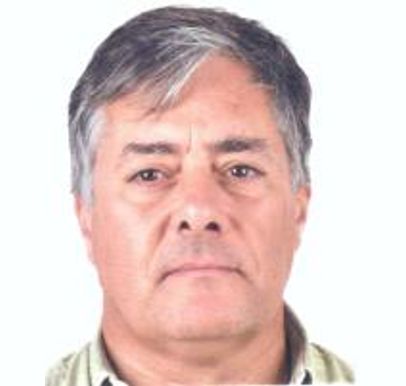 Â
 Â
Ernesto Ocampo is a Regional Specialist for Latin America. He has worked for UNEP-GEF Biosafety Clearing House capacity-building projects since 2005. He has helped with the project’s coordination for Latin American countries and with the development and publication of the complete set of BCH training materials. Ernesto speaks Spanish (mother tongue), English, Portuguese, he reads and understands French and Italian. He is from Uruguay. Â
Â
Dr Ernesto Ocampo has been working for the Biosafety Clearing House Capacity Building Projects since 2005. He has helped with the project’s coordination for LAC countries and the development and publishing of the complete set of BCH training materials. Â
Dr. Ocampo got a PhD in Computer Science from Universidad de Alcalá, Spain, a MSc in Software Engineering from Universidad Pontificia de Salamanca, Spain, and the Informatics Engineer degree from Universidad Católica del Uruguay. His current research focus is on Artificial Intelligence and Machine Learning applied to Life Sciences, state of the art Teaching and Learning methodologies for STEM and Learning Analytics. He is also a certified Team Based Learning Consultant Trainer. Â
Ernesto has more than 30 years of experience in software development in the industry, biosafety and education sectors, including the development of several national BCH Systems and parts of the Caribbean Regional Biosafety Portal. He is a tenured Professor and researcher at Universidad Católica del Uruguay, teaching several courses (Artificial Intelligence, Machine Learning, Software Engineering, Algorithms) and researching on AI and ML since 1994.Â
Dr Ocampo has collaborated to design and deployed dozens of BCH national workshops and more than 10 regional workshops in more than 25 countries, and many global BCH capacity-building workshops including those at CBD COP-MOPs (Montreal 2005, Brasilia 2006, Bonn 2008, Nagoya 2010, Hyderabad 2012, Cancún 2016 and Sharm-el-Sheik 2018). He attended the first BCH Regional Advisors Training in Kuala Lumpur, 2005, and then helped training other RAs in subsequent ToTs at Bangkok 2006, Delhi 2007, Geneva 2008, Montreal 2011 and 2015, and virtual training 2018-2020. Since 2006 Ernesto has been in charge of developing and publishing BCH training materials, building the BCH Virtual Learning Environment and setting up more than 70 courses for national and regional workshops. He developed and published the complete former BCH Help System in 6 UN languages, and coordinated or developed more than 50 global BCH webinars. Â
Dr Ocampo has participated in the BCH Informal Advisory Committee since 2006. Â
You can contact Ernesto at ernesto@qualisyss.com Â
Â
Â
Â
MarÃa de Lourdes Torres is Regional Advisor for the BCH II project in Latin America. She has been a Regional Advisor for UNEP-GEF projects since 2007 and has facilitated workshops in most Latin American countries. MarÃa is from Ecuador. Her native language is Spanish, and she is also fluent in English and German.Â
Â
MarÃa de Lourdes Torres, PhD in Biology with an emphasis in Plant Molecular Biology, Freie Universität Berlin, Germany. She has been working as a full-time professor at the Universidad San Francisco de Quito since 1995, where she is Head of the Biotechnology Department and Director of the Plant Biotechnology Lab.Â
Her main research interests are genetic diversity and population structure of local animal and plant species, characterization and functionality of microbiomes related to local plants and ecosystems, and genomic studies of local species in mainland Ecuadorian and in island ecosystems, such as the Galapagos Islands. The results of her research are intended to contribute to the conservation and adequate management of species of importance to Ecuador. She is the author of several scientific publications related to the topics she investigates.Â
She has also worked on different topics related to biosafety and access to genetic resources and is an expert in biosafety and synthetic biology within the framework of the Cartagena Protocol, Convention on Biological Diversity. She participated as an official delegate of Ecuador in the negotiations of the Supplementary Protocol on Liability and Redress to the Cartagena Protocol and in several COP-MOP meetings. Since 2007 she has been a regional advisor for the UNEP-GEF BCH Project and has given workshops on the BCH in most Latin American countries. Â
Â
You can contact Maria at madeltotorres@gmail.com Â
Â
Â
Â
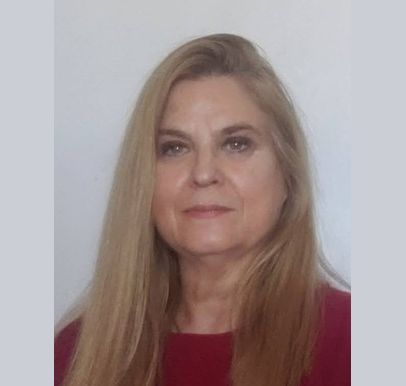 Â
 Catalina Fellegi is one of the three Latin America’s Regional Advisors for the BCH III project. She has been working as a UNEP-GEF Regional Advisor since 2006, and delivered workshops in nine countries: Dominican Republic, Ecuador, El Salvador, Panamá, Paraguay, Peru, Uruguay, and Venezuela. As a Project Leader, she has developed the BCH project training materials and Central portal Help System Integration (in 6 UN languages). Catalina is from Uruguay. She speaks both English and Spanish.Â
Â
MSc. Eng. Catalina Fellegi is an international Information & Technology consultant from Uruguay. Has three master’s degrees in strategic planning and Management, Education and Software Engineering. Her expertise includes Consultancy service and coordination of IT projects implanting a multi-platform & multi-language ERP (Enterprise Resource Planning) system, in Uruguay and in foreign countries such as: Italy, Guatemala, Venezuela, Peru, Chile, Paraguay and Argentina.Â
As a UNEP/GEF Regional Advisor (since 2006), has delivered Capacity Building for Effective Participation in the BCH workshops in 9 countries: Dominican Republic, Ecuador, El Salvador, Panamá, Paraguay, Peru, Uruguay, and Venezuela. And developed (as project leader) the BCH Project training materials & Central portal Help System Integration (in 6 UN languages)Â
She has great experience, more than 25 years in the software industry, 3 years in government administration, and 22 years in private administration developing activities like Software analysis, design, construction, and project management. Â
Â
Catalina has been a Professor at the Catholic University in Montevideo (Uruguay) in the Computer Science Department for more than 28 years, teaching several computer science courses, like Software engineer I, II & III, System analysis, and Project development. And has also developed and conducted workshops in several Universities in: Paraguay, Venezuela, Colombia, Mexico, Guatemala, Brazil, and Uruguay.ÂShe is an ISO Auditor and led the process of ISO certification in the System Department at the Catholic University. She is fluent in both English and Spanish.Â
You can contact Catalina at catalina.fellegi@gmail.com Â
Â
THE PACIFIC REGION – REGIONAL ADVISORSÂ
Â
Â
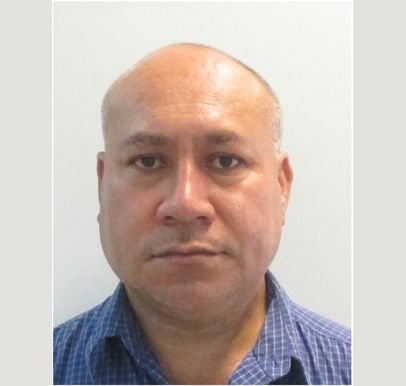 Â
 Â
Samiuela Fonua is a Regional Advisors for the BCH III project, specialized in workshop training in the Pacific region. He started as an ICT Advisor for the BCH project and later became the Regional Advisor for the Pacific Island Nations. Â
Â
Samiuela has an extensive experience in project development and training around the Pacific and understands the wider challenges facing the Pacific regarding global matters especially the implementation of the Cartagena Protocol on Biosafety and use of the BCH. He is currently working as an Educator in Tonga with the Free Wesleyan Church of Tonga after returning from Fiji in 2007. While in Fiji, Samiuela Fonua was working for the University of the South Pacific as an ICT administrator and has been involved in various development projects within the Pacific region. Â
Â
He holds a BSc in Mathematics, Post graduate Diploma in Computer Sciences and a Master of Administration. ÂÂ
You can contact Samiuela at sam.fonua@tupou.to Â
Â
Â
Â
-
